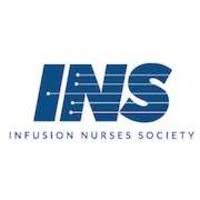On January 25, IV nurses around the country will once again be recognized with a day in their honor. Since 1980, the Infusion Nurses Society has sponsored IV Nurse Day has called attention to the nurses who specialize in infusion nursing.
This year’s theme “It’s About Us. It’s About Infusion.” highlights IV nurses’ dedication to their professional careers and their commitment to their patients’ health and safety.
Infusion nurses are drawn to the specialty for various reasons. Many enjoy the direct patient care and their essential place in a medical team. They are able to offer patient and family education for those who are seen in offices and centers and to those who require infusions out of a clinic or hospital setting. And they are also able to remain current on innovative practices and medication management.
IV nurses must know how to properly place infusion equipment to reduce pain, increase accurate placement, and prevent infection. They need to understand what medications (antibiotics to chemotherapy) and fluids (blood to saline) they are administering and keep tabs so they know which medications might interact. Infusion nurses keep track of infusion sites for any signs of infection, poor placement, or discomfort.
According to Salary.com, infusions nurses make anywhere from $78,550 to $94,136 annually. IV nurses who want to remain at the cutting-edge of the industry and who want to provide the best possible patient care should become certified as a CRNI (Certified Registered Nurse Infusion). Certification requires extra training and a deeper dive into the details of this specialty. Obtaining certification means you have the latest tools to help your patients.
While infusion nurses are masters at the task of establishing a line or a catheter with minimal discomfort and excellent placement, they are also doing it all while talking with and often comforting a patient and any present loved ones. They are able to distract with words and actions, to establish a trust and connection with their mannerisms, and reassure with their knowledge. All of this direct patient care is what makes an IV nurse’s job different every day.
Take the time today to thank the IV nurses in your life!
- WOC Nurses Week Highlights Specialty - April 16, 2024
- Honoring Radiology Nurses Day on April 12 - April 12, 2024
- Travel Offers New Career Possibilities - April 8, 2024



